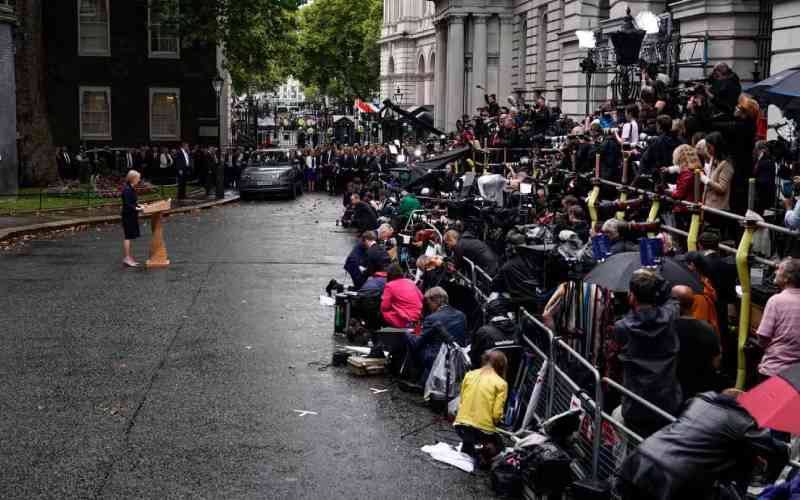×
The Standard e-Paper
Stay Informed, Even Offline

British Prime Minister Liz Truss took office less than two weeks ago, impatient to set her stamp on government and facing an overflowing inbox of crises: soaring inflation, a plummeting national currency and skyrocketing energy bills.
Then the death of 96-year-old Queen Elizabeth II ripped up Truss' carefully laid plans.